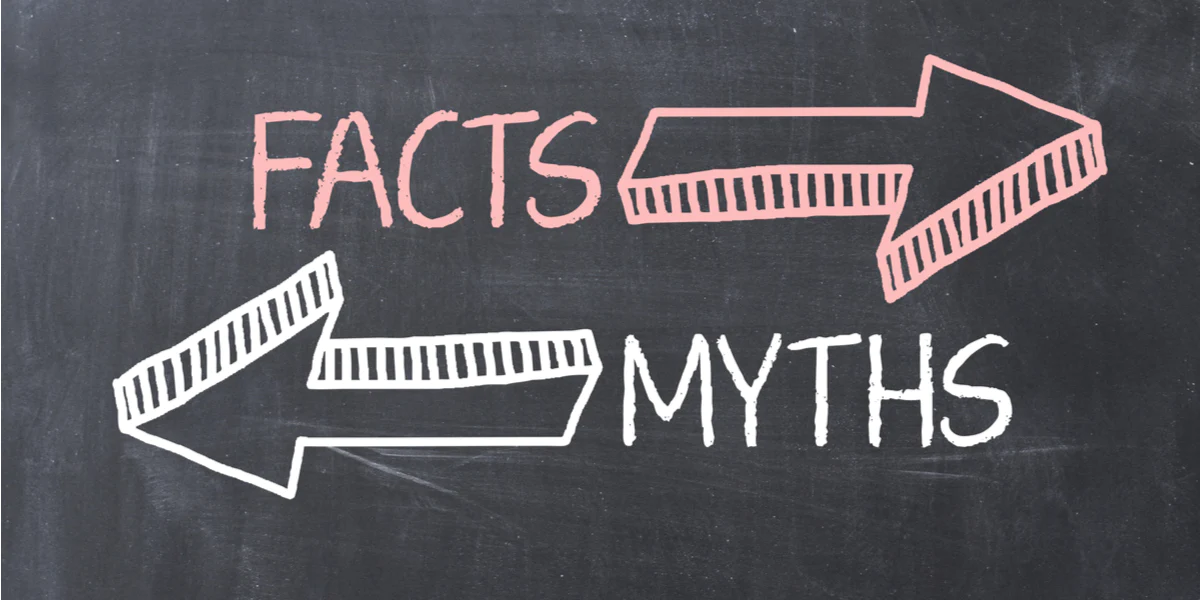Physical Address
304 North Cardinal St.
Dorchester Center, MA 02124
Physical Address
304 North Cardinal St.
Dorchester Center, MA 02124

Menopause is a significant phase in every woman’s life that often comes laden with numerous myths, misconceptions, and unanswered questions. These myths oftentimes exacerbate fear and misconceptions instead of providing clarity and reassurance. For women navigating this natural, albeit transformative, period, it’s critical to distinguish fact from fiction. This comprehensive article aims to debunk some common myths about menopause and set the records straight.
Menopause, by definition, is the cessation of menstrual cycles, marking the end of a woman’s reproductive years. This biological event, typically occurring between 45-55 years, is often marked by a set of symptoms, out of which, hot flashes are only a part. A broader understanding of menopause involves acknowledging it as a transition with varying individual experiences and not merely a stop in menstruation or periodic hot flashes.
For women going through menopause, finding trusted, reliable resources is essential. One such valuable resource that has gained popularity recently is menopause podcasts. These podcasts are usually hosted by health experts or women who have personal experiences with menopause. They offer a platform that provides accurate information, shares relatable experiences, and promotes discussion about various aspects of menopause. While there are many sources available online and offline, it’s crucial to sort through the information and separate fact from fiction. Now, let’s explore some common menopause myths and their facts.
One of the most common misconceptions is that menopause starts precisely at around age 50. While the average age to begin menopause is around 51, it’s essential to remember that menopause is highly individual and can occur any time between 40 and 58 years. Additionally, factors like smoking, chemotherapy, or removal of the ovaries can induce early menopause.
Often, menopause is perceived as a sudden halt to menstrual periods. The truth is, menopause is a gradual process that unfolds over years. The transition period, known as perimenopause, typically lasts four years but can extend up to 10 years for some women, with periods becoming less frequent over time until they cease completely.
While menopause can often coincide with weight gain, it’s not the sole cause. Age, lifestyle, and genetic factors also play pivotal roles. So while menopause does not automatically mean weight gain, it’s vital to incorporate regular exercise and a balanced diet into your daily routine to maintain a healthy weight.
While irregular periods are part of the journey towards menopause, immediate confirmation only happens after a full year without menstruation. This end point is when the ovaries stop releasing eggs and estrogen levels decrease significantly.
Decreased libido is often attributed to menopause, but it’s not a given. While low estrogen levels can cause a decrease in libido for some, it doesn’t happen to everybody. Many women may even experience an increased sex drive due to a release from the worry of contraception.
Although fertility decreases with age, the possibility of pregnancy doesn’t completely diminish until menopause has truly set in. Therefore, it’s crucial to continue using birth control until your doctor confirms the onset of full menopause, i.e., 12 consecutive months without periods.
While hot flashes (sudden feelings of warmth, usually in the upper body) are a common symptom and often associated with menopause, they don’t affect everyone equally. Some women experience them frequently, while others may never have one.
While certain studies have indicated potential risks of HRT, it’s also been shown to be beneficial for many women, especially for those with severe menopausal symptoms. The appropriateness of HRT should always be discussed with a healthcare provider and tailored to individual health needs and risk factors.
Many women fear the process of menopause, viewing it as a debilitating condition. However, menopause is a natural biological process, not a medical condition. While it comes with its own set of challenges, understanding and effective management can make the transition smooth and far from debilitating.
Menopause and Premenstrual Syndrome (PMS) share overlapping symptoms, but they are not the same. PMS is a cyclic recurrence of symptoms that coincide with the menstrual cycle. Menopause symptoms are more prolonged and attributable to the gradual decline of estrogen.
As your body goes through hormonal changes during menopause, there can be changes in breast size and shape. This is why it is crucial to have a well-fitting bra that provides proper support and comfort, especially if you are experiencing breast tenderness or pain.
While looking for a bra, women going through menopause should seek materials that are breathable, comfortable, and moisture-wicking. The best bra for menopause should accommodate fluctuating sizes and provide excellent support. Some of the market’s top menopause-friendly bras include seamless, wireless bras, and those with wide straps for added comfort.
Misinformation can lead to unnecessary anxiety and worry. It’s time to debunk these menopausal myths and open up accurate and honest conversations. Menopause is undoubtedly a significant life transition, but it doesn’t signal an end. Instead, it opens a new chapter where you can empower yourself with the right knowledge and understanding. If you embrace this stage, and seize the opportunity for comprehensive self-care and growth, you can help ensure your menopausal years will be some of your best.